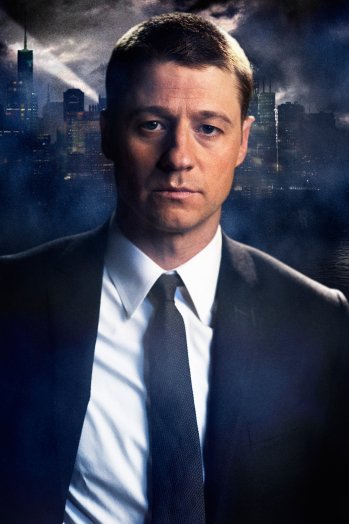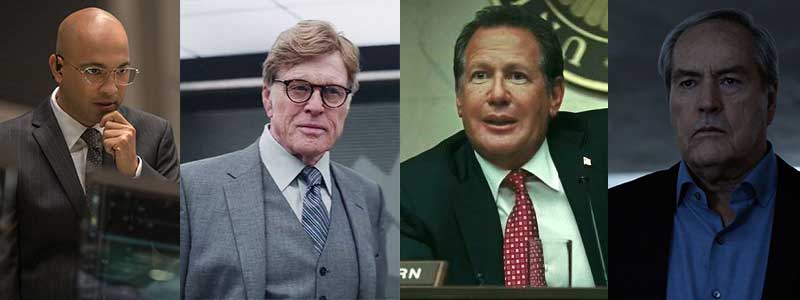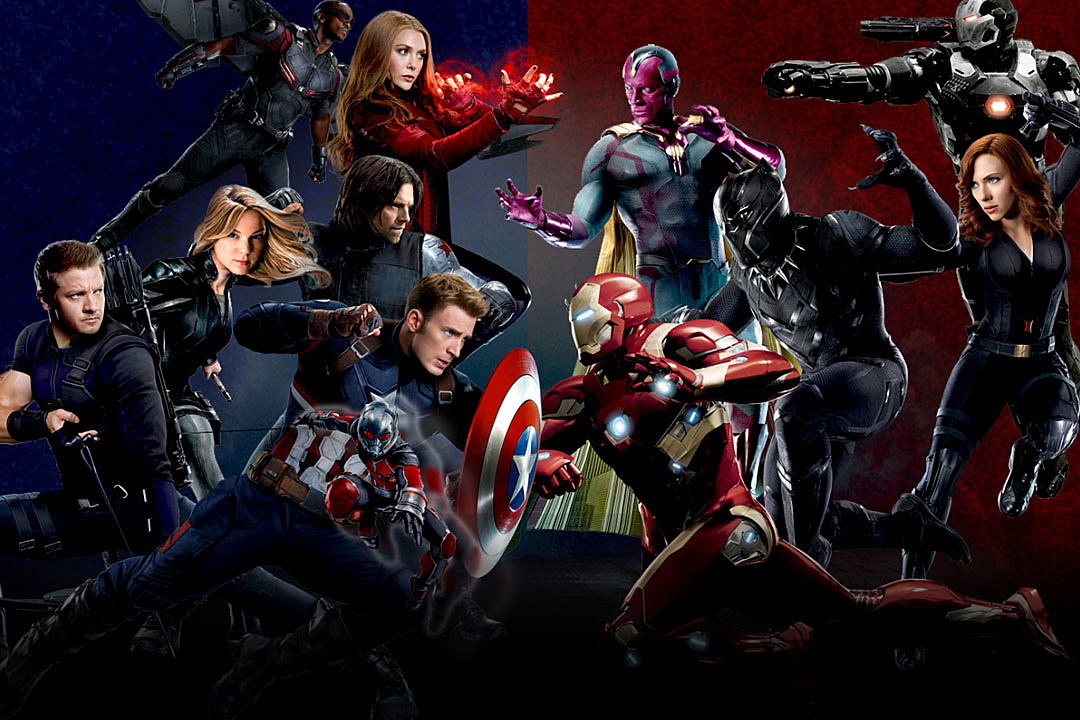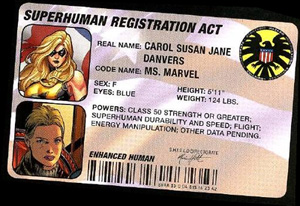Lesson Three
Oversight of Superheroes
Our very strength invites challenge. Challenge incites conflict. And conflict... breeds catastrophe. Oversight... Oversight is not an idea that can be dismissed out of hand.
We learned in previous lessons that superheroes are driven by a sense of moral responsibility to protect the population. Either through superpowers or training, they apprehend criminals and do not hesitate to interfere with the work of police officers, firefighters, rescue workers, and military personnel. Looking from the legal point, their actions are indistinguishable from the very criminals they seek to prevent. They exercise their power unilaterally and operate far outside the boundaries of a courtroom or international agreements such as the Geneva Convention.
So, a question is posed. Who gave them such permission? Really, no one. They submit to their personal sense of justice, take matters into their own hands and we excuse their behavior for several reasons. How is it that the superheroes receive pardon for their, technically illegal, acts? Why do we put them on a pedestal and tell our children to look up to them as role models?
For people to approve the actions of superheroes, one big piece of the puzzle must first be put into place. The world the people and the heroes inhabit. This world must be a broken one, not functioning, such as ours is. There are two types of broken worlds in which superheroes may arise.

First such broken world is the Corrupt World. Here, superheroes might exist because the established system is too broken to ever be fixed on its own. Top political and law enforcement figures are either too corrupt or too afraid to do anything about the problem. Those who are able to resist corruption or fear find that the cost of standing up against injustice is too high. They experience threats of violence, harm to loved ones, demotion and general lack of departmental support. The real people in charge are different aspects of the criminal underbelly, such as crime families, greedy corporations and intelligent individuals, who just want to watch it all fall apart. In this broken world, there is no hope for reform or even a hint that things can get better.
So there is no surprise that superheroes in the Corrupt World cannot work directly with already established authorities, although they might have a few trusted individuals that they work with covertly. Here superheroes work as a shock to the whole system and deal vigilante justice since current laws cannot do anything or fail to do so. Superheroes become a beacon of hope for the world's inhabitants who lost trust in the politicians and law enforcement. So, the heroes try to deal with corruption to clear the way for the rule of law to be restored.
We can see this in the TV show Gotham (2014-), where the whole system is so corrupt that police officers work with known murderers and other criminals without really thinking on it. Few exceptions, like James Gordon, find it very difficult to remain unblemished while trying to face Gotham's crime. Another example is Arrow's (2012-) Starling City, which is under the rule of powerful moguls, who have little value for human life. While not pertaining to the city, but rather an organization, Captain America: The Winter Soldier (2014) shows deep corruption of S.H.I.E.L.D.'s operations, decades in the making, to such a point that the whole organization has be dismantled and reconstructed, which largely occurs in Agents of S.H.I.E.L.D. (2013-).

The second world is the Helpless World. Here, the politicians and police offers are doing their jobs, but are hopelessly outmatched, compared to the threat they face. Superheroes act as a supplement to a good system of law and order when it is in need of extra help. The villains often have better skills, better weapons, greater resources and are simply more ruthless. They might even have superpowers of their own. This makes for a deeply moralizing world to live in. People, and sometimes even authorities, often think that the crimes are unstoppable and current safeguards in place are failing.
This was the driving reason behind Nick Fury's decision to call together a band of heroes in The Avengers (2012). The people living on Earth simply do not have resources to fight against Loki and his army of Chitauri on their own. In Man of Steel (2013), Superman comes out of hiding behind his reporter persona to face General Zod, while in The Flash (2014-) the police officers are doing a good job, but are mostly defenseless against super-powered meta-humans.

This brings us to the core question of the lesson: How above the law should superheroes be? The relationship between superheroes and the law is complicated. They both strive to ensure justice and fairness in society which lacks it while upholding the principles behind it. However, if the super-powered individuals felt that the legal system alone was good enough, they would never be driven into action in the first place.
The movie that explores the problem with the oversight of superheroes is Captain America: Civil War (2016), which was based on Marvel Comics' Civil War storyline. In the movie, The Avengers (and some superheroes they picked up on the way) have a falling out over a legal document called the Sokovia Accords, which would make the Avengers surrender most of their decision making power to the United Nations.
On one hand we have Tony Stark, who believes that the superheroes should be held accountable for their destructive actions and accept limitations to show that everyone must abide the law regardless of their power. On another hand, Steve Rogers, also known as Captain America, feels that if the superheroes surrender their decision-making ability to such a great extent, they would fall under the thumb of politicians, who have many hidden agendas and whose opinion and values might differ from the Avengers'.

In the Civil War comic storyline (2006-2007), the issue around the oversight of superheroes was presented a bit differently and more thoroughly. It was known as the Superhuman Registration Act (SRA) and was a legislative bill passed into law in the United States of America (rather than United Nations). It enforced mandatory registration of super-powered individuals with the government. SRA was also tightly connected with Mutant Registration Act, which we will mention in detail in the next lesson.
After the events of M-Day (where the population of mutants experienced a sudden and a dramatic drop), Iron Man and Spiderman traveled to Washington to discuss the issue of super-human registration. Initially, Iron Man was opposed to the registration, while Spiderman was unsure what to think about it. Tony Stark believed that it was only a matter of time before a superhero or a group of them would make a mistake that would push the government into passing a more restrictive or persecutory legislation than SRA would be. Iron Man believed that if he and other powerful superheroes supported the SRA before it was passed, they (most notably the Illuminati) would help avert future tragedies and by becoming a part of the process, help moderate the legislation to have minimum possible negative effects on the superhero community.
Unfortunately, Iron Man was proven right when a fight between the New Warriors and a group of supervillains resulted in a massive explosion which killed more than 600 people, 60 of them children. Public backlash was immense and in the end, this allowed the government to quickly enact the SRA, which was abolished only after the siege on Asgard.
What were the terms of SRA? It required that super-powered individuals surrender their real names and powers to the government, which led to the loss of secret identities, a staple of many superheroes. This also enabled the government to monitor all those with super powers and design something similar to a draft, which would employ or at least license powered individuals who were actively using their powers. These people would also have to fulfill some requirements or meet certain criteria before they would be allowed to use their abilities to fight crime. Employment by the government was not mandatory, but it was available to all who wished to use their powers to fight crime.

Emotionally and impulsively, it might be easier to first agree with Captain America's thinking that one should have faith in super-powered individuals rather than institutions, especially since the law should first and foremost serve the people. However, we must remember that in a democratic society, law does not just exist to establish order and create limitations, but to ensure basic freedoms and human rights. So, by going vigilante and undermining what Captain America thought was a flawed legal system, he also undermined many important aspects inherent to the rule of law.
So, does that mean Tony Stark is right about the Sokovia Accords/SRA? Not necessarily. Civil War leaves us without a clear answer, which was perhaps the point. Stark is not happy about the tighter legal control over superheroes either, he simply considers it a necessary sacrifice. Both, Captain America and Iron Man took their respective viewpoints too far, which culminated in the, now famous, airport fight in the movies. There is obviously need for structure and order in regard to superheroes, but it should never come at the price of totally removing humanity from the decision-making process.
